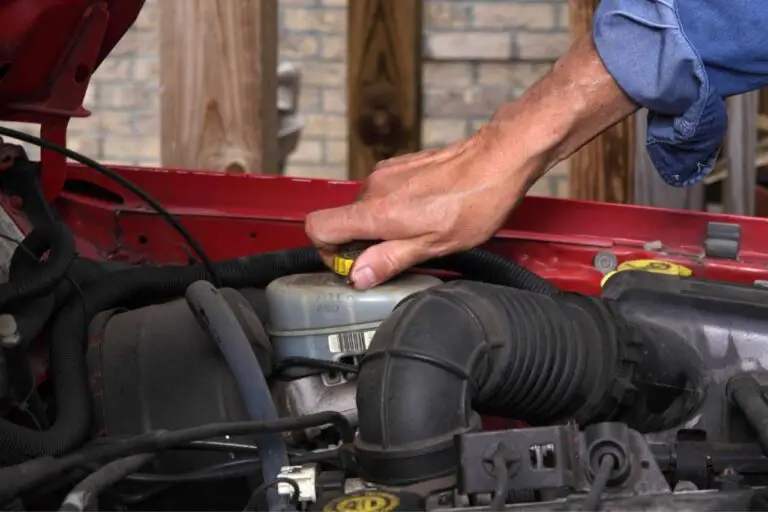Does Every Car have Differential Fluid? (Electric, Hybrid & Traditional)
“Does every car have differential fluid?” is a question many car enthusiasts and owners ponder, especially as automotive technology rapidly evolves. In today’s discussion, we will be exploring the intricate world of car differentials, including electric and hybrid vehicles, the nuances of drive systems, and the unique cases of vehicles that break the mold. Are you not sure whether your vehicle needs differential fluid or not? Embark on this journey with us!
Does Every Car have Differential Fluid?
No, not every car has differential fluid. Specifically, cars with a solid rear axle or front-wheel drive typically don’t require it.
Here is a quick review of vehicle types that need differential fluid. Most rear-wheel-drive and all-wheel-drive vehicles possess a differential and require differential fluid for proper functioning. This fluid lubricates the gears, helping reduce friction and preventing overheating.
When it comes to the vehicle types that do not require differential fluids, front-wheel-drive vehicles come first. Many front-wheel-drive vehicles utilize the gearbox oil as a lubricant, eliminating the need for separate differential fluid.
Whether or not a car uses differential fluid, it’s vital for the ones that do. The fluid ensures the smooth turning of wheels, especially when navigating curves.
Modern vehicle designs, including electric cars, might not adhere to traditional configurations. It’s always best to check your vehicle’s manual to understand its specific needs.
Remember, while the presence of differential fluid depends on the car’s design, for those requiring it, maintaining its quality is paramount for optimal performance.
Does the Drive System Affect the Need for Differential Fluid?
The drive system of a car significantly influences the need for differential fluid. Particularly, the type of drive system determines whether a car utilizes differential fluid or not. Here, we have listed the main drive systems along with their necessities of differential fluids.
- Rear-Wheel Drive (RWD) Systems: Almost all RWD cars are equipped with a differential that relies on differential fluid for smooth functioning. The fluid acts as a lubricant, minimizing friction between gears and aiding in heat reduction.
- Front-Wheel Drive (FWD) Systems: A majority of FWD vehicles don’t have a separate differential fluid reservoir. Instead, they often use the transmission fluid or gearbox oil to serve the purpose of lubricating the differential mechanism.
- All-Wheel Drive (AWD) and Four-Wheel Drive (4WD) Systems: These vehicles typically have multiple differentials and, thus, use differential fluid in both front and rear setups.
- Modern Variations: With evolving car designs and hybrid configurations, it’s crucial to consult the owner’s manual. Although they have modern configurations, some of their setups are still traditional.



Do Electric Cars Need Differential Fluid?
No, not all electric cars require differential fluid. Many electric vehicles (EVs) use direct-drive systems, bypassing the traditional differential mechanism. So, we can categorize electric cars into two major parts according to their requirement of differential fluid.
- Direct-Drive Systems: A significant number of EVs adopt this design, wherein electric motors are mounted directly to the wheels. As a result, there’s no differential, and thus, no need for its fluid.
- EVs with Differentials: However, some electric vehicles emulate conventional car designs and incorporate differentials, especially in high-performance models. For these, differential fluid remains vital.
If you have doubts about whether your EV model needs fluid or not, go through the user manual that comes with a specific model. If your model needs fluid, take prompt action.
Do Hybrid Cars Need Differential Fluid?
Yes, most hybrid cars do require differential fluid as they often have a traditional drivetrain alongside their electric components.
Unlike pure electric vehicles that might use direct-drive systems, hybrids typically possess conventional drivetrains. This design necessitates the use of differential fluid to ensure smooth power transmission.
When it comes to the responsibilities of fluid, it minimizes friction, dissipates heat, and aids in the longevity of the drivetrain components, which is crucial for hybrids that might switch between electric and internal combustion power.
In order to have optimal vehicle performance, check the fluid condition and replace it at regular intervals.
What Cars Do Not have a Differential?
Some cars without a traditional differential system are single-wheel drive vehicles, and certain electric cars with direct-drive systems.
- Single-Wheel Drive: Commonly found in lightweight or niche vehicles such as mopeds, some three-wheelers, and specific small cars. In these, power is delivered to only one wheel, eliminating the need for a differential.
- Direct-Drive Electric Vehicles: Some electric vehicles (EVs) use individual electric motors for each wheel or deploy a direct-drive system. These setups can electronically control power distribution, bypassing the mechanical need for a differential.
- Vehicles with modern layouts: Advancements in automotive technology have allowed manufacturers to explore alternative drivetrain designs that negate the necessity for differentials, particularly in the realm of EVs.
You May Also Like
- Can Bad Differential Fluid Cause Vibration? Unveiling the Truth!!!
- Can you Overfill Differential Fluid? Understanding the Basics!
- How to Replace Rear Differential Fluid? Mastering Vehicle Maintenance!
- How Often to Change Differential Fluid? Understanding Your Car!
- Is Differential Fluid Flammable? Unmasking Myths!
- Does Differential Fluid Need to be Changed? Ensuring Your Car’s Health!
- Cost to Change Differential Fluid – (DIY vs Professional Services)
- What Color is Differential Fluid? Decoding the Shades!
- What does Differential Fluid Smell Like? Unraveling the Mystery!







